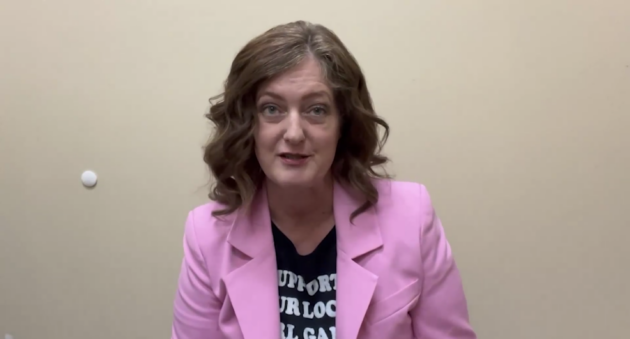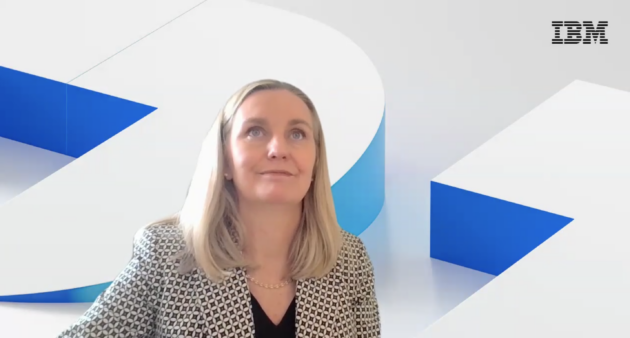
Articles
Fabrication
Advance: Women in Manufacturing discusses how to bring women forward
March 17, 2025 By Ojasvini Parashar

For decades, women have remained underrepresented in Canada’s manufacturing industry. According to Statistics Canada, women made up just 29 per cent of the sector’s workforce at the end of 2023 — a number that has barely changed in 40 years.
To support and raise awareness for women in manufacturing, Annex Business Media’s 14 manufacturing brands came together for the 5th year to host the Advance: Women in Manufacturing virtual summit, which was centred around the theme of International Women’s Day 2025, “Accelerate Action.” The event took place virtually on March 5, 2025.
Opening remarks
The summit began with a welcome from Nithya Caleb, editor of Food in Canada and PrintAction, Sukanya Ray Ghosh, former editor of Manufacturing Automation, and Kirstyn Brown, editor of Plant and MRO.
The event, sponsored by MNP, Valmet and Sonami, included a keynote titled ‘Leading the way,’ a panel discussion on ‘Trailblazing innovation – How women are shaping the future of Canadian manufacturing,’ a workshop named ‘Speak up, stand out – Building assertiveness skills,’ a fireside chat on accelerating action, and a final panel discussion called ‘Ask the boss – Navigating tough conversations.’
 A few words from MP Lisa Hepfner
A few words from MP Lisa Hepfner
Lisa Hepfner, Parliamentary Secretary to the Minister for Women and Gender Equality and Youth, shared a message expressing pride in the dedication to “breaking down barriers that are preventing or discouraging other women from entering the manufacturing industry.”
“By creating opportunities for women, we are unlocking their potential and driving innovation, supporting our economy, and helping to ensure a sustainable future for everybody,” Hepfner said.
She lauded the efforts to support women in forging their paths in Canada’s manufacturing industry and overcoming the challenges of a male-dominated field, stating that “every woman’s success story is a testament to her resilience, her determination, and the power of opportunity.”
Keynote speaker Shannon Wilson, industrial sector leader at IBM Canada, shared her journey and highlighted the opportunities within the manufacturing industry, emphasizing its crucial role in the gross domestic product and economic viability of countries. She stressed that manufacturing is essential for producing, innovating and delivering high-quality goods.
Wilson noted that the manufacturing industry is in transition, driven by automation, visual inspection for quality, robotics, and predictive maintenance. She suggested individuals focus on the “bottom line of the company and the top line growth of the company,” stating that being essential to the business and having a purpose is crucial for success, particularly for women in the industry.
Addressing the underrepresentation of women in manufacturing and skilled trades, as well as the stagnation in female participation in engineering, Wilson said, “Make sure that you are focusing on yourself and your career because just being there and showing up and being successful is inspirational to others and creates an environment where people can … be inspired.”
In response to a question about the one takeaway for attendees’ careers, Wilson advised, “Drive your own bus. Decide what should be done, where you’re going, and why. You and your organization should go in that direction because that’s what leadership is.”
 Panel discussion- Trailblazing Innovation: How women are shaping the future of Canadian manufacturing
Panel discussion- Trailblazing Innovation: How women are shaping the future of Canadian manufacturing
The first panel discussion featured Samira Soltani, co-founder and COO of Wireless PnC, Yun Yao, CEO and co-founder of Soralink, and Martha Breithaupt, tax partner for BDO’s Credits & Incentives practice and leader of the Clean Economy Tax Credit practice in Canada. The discussion, moderated by Caleb, focused on women’s contributions to innovation in the manufacturing sector.
Yao and Soltani shared their experiences founding their companies in the AI/IoT spaces and cleantech, respectively. Soltani recounted the initial idea of wireless charging, leading to identifying a gap in EV infrastructure. Breithaupt highlighted how women uniquely contribute to driving innovation by bringing a “different lens, having different ideas and having a different approach to things like innovation.”
Addressing a question about common myths in the women founders’ space, Soltani pointed out the bias in fundraising. “You just accept it … and having a collaborative leadership style, just helps you to go on and not think about it,” she said.
Breithaupt discussed BDO’s internal (Excel) and external (Women Driving Growth) programs aimed at supporting women and fostering mentorship.
“In the external program, we reach out to help entrepreneurs grow, elevate and access things like funding and capital supports as well as filings. It brings together women from across the country. There’s a chance to have conversations with women you otherwise wouldn’t. So, I found that extremely positive,” she said.
“We also have internal programs helping women to excel. It’s a blend of thought content. We have monthly internal calls where local teams and groups of women get together and just talk … sharing our experiences. I think that’s very powerful,” Breithaupt added.
Yoon emphasized the difficulty of the fundraising environment in 2024-2025 but noted increased openness from venture capitalists toward diverse founders and advised women to “play that to your advantage” and let numbers speak.
“It’s harder for early-stage companies, but as soon as you reach series ABC, what counts are the numbers. Your startup’s numbers show that you are a competent leader with a vision,” Yoon said.
When asked about the importance of mentorship, Soltani highlighted its role in providing guidance and support. Breithaupt encouraged women to “elevate each other” and attend networking opportunities to strengthen the community.
Regarding hiring more women in manufacturing, Yoon acknowledged the challenges due to the difficulty in finding skilled people and economic uncertainties. Soltani concluded by emphasizing the need to “advocate for ourselves and each other” and push for change together.
 Workshop: Speak up, stand out – Building assertiveness skills
Workshop: Speak up, stand out – Building assertiveness skills
Jermaine Stennett, a keynote speaker and leadership coach, led a workshop focused on building assertiveness skills and self-expression. She shared her personal journey of overcoming public speaking anxiety.
Stennett introduced the concept of self-concept and how a limited self-image can hold women back, referencing Dr. Claire Zammit’s research on 21 limiting beliefs specific to women. She stressed that “we can’t outperform our self-image”. The workshop aimed to help participants update their self-image as more confident and assertive individuals.
Stennett provided a framework for presenting ideas assertively, suggesting running them through variables like selflessness, win-win potential, and perceived agenda, as well as the “five whys” to create a comprehensive business case, first convincing oneself.
“It’s like you’re creating a comprehensive business case for yourself first. You’re convincing yourself first, and once you’re convinced and convicted about your idea, you will feel confident and convicted. Then you’ll be able to present your idea and stand up for your idea if you need to,” she said.
The act of doing so reinforces positive thoughts and creates new patterns of behaviour through neuroplasticity.
Addressing challenging situations, Stennett advised starting with the feelings and acknowledging the nervous system’s fight or flight response. She emphasized that “not feeling it doesn’t have to be a sign that I shouldn’t do it … it’s a growth moment.”
 Fireside chat on #AccelerateAction with Danaka Porter
Fireside chat on #AccelerateAction with Danaka Porter
Brown engaged in a fireside chat with Danaka Porter, partner at IOTA Consulting. Porter discussed her multifaceted career and how her experiences shaped her perspective on breaking down barriers for women in industries like manufacturing.
“I just think that there are some preconceived notions, and we need to change the ideas and some of the thought processes at the top before we can really see changes go all the way down,” Porter said. She further emphasized that leadership needs to understand women are just as capable as men.
She suggested that creating inclusive workspaces starts with practical aspects like better bathrooms with menstrual hygiene products, women-only bathrooms in remote sites, and nursing rooms.
Regarding educational systems, Porter stressed the importance of evolving course material to be more updated and representative. She shared her experience writing her own supply chain and project management textbooks to fill gaps and provide a more conversational and accessible learning experience. She was the first woman to write a supply chain textbook.
“Seeing yourself reflected in something that typically you don’t is inspiring, empowering, and encouraging,” she said.
On mentorship, Porter highlighted the value of having both female and male mentors for different perspectives. She emphasized that mentors could bring one into rooms they might not have known existed.
Regarding leadership’s role in advocating for women’s success, Porter stressed the importance of “zero tolerance for poor or bad behaviour towards women” and standing by women when issues arise, creating a safe space.
Panel Discussion- Ask the boss
The final panel, “Ask the Boss,” was moderated by Ghosh and featured industry leaders Hali VanVliet, partner at MNP, Jennifer Lortie, director of Sales and Development at Fabelta and Bhavna Bahri, partner at EY Canada.
On asking for career advancement without seeming impatient, VanVliet advised women to approach conversations with “both clarity and confidence” by building a profile of their accomplishments and qualifications.
Lortie emphasized the importance of staying informed, sharing best practices, volunteering for projects (even outside one’s department), and being patient and persistent. She shared her own experience of overcoming initial setbacks by demonstrating her capabilities.
Bahri encouraged women to own what they do and their unique styles, highlighting that women-led projects often succeed. She also pointed out the transferability of women’s skills and shared examples of women successfully transitioning into leadership roles in manufacturing.
“When manufacturing, whether we like it or not, it’s about people, and people are the ones operating the machines. So, as much as we would think manufacturing is technical is about machines, it’s actually about the most human thing that you can do right now,” she said.
Regarding menstrual leave, VanVliet stated it should be treated like any other illness requiring accommodation. Bahri advocated for a non-apologetic and objective approach to women’s health needs, suggesting manufacturing could set a precedent for such policies.
For additional on-demand content, check out podcasts with Maria Tkacheva, COO at Roshel and Alexandra Monkhouse, partner at Monkhouse Law. Watch a video by Sherry Aziz, CFO of Amir Quality Meats, on her journey, the challenges she has faced, and how she has overcome them.
Watch the full event by visiting Advance: Women in Manufacturing 2025.
Print this page
